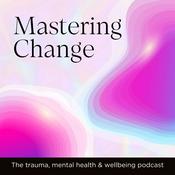What makes someone feel so bonded to a group that they’d sacrifice almost anything for it – and how does that same force help us heal?
In this episode of Mastering Change, cognitive anthropologist Dr. Martha Newson unpacks ‘identity fusion’ – an extreme form of social bonding where self and group identities merge, creating family-like ties and powerful loyalty.
Drawing on years of research with football fans, prisoners and festival communities, Martha explores how ritual, shared challenge and moments of perceived transformation strengthen these bonds. She explains why people can feel trapped in damaging groups – families, institutions, even cult-like communities – because losing that belonging can feel physiologically unsafe, not just emotionally painful.
Martha also advocates for collective healing spaces – from 12-step groups to choirs and walking clubs – explaining that they are essential companions to individual therapy.
We explore:
What identity fusion is – and how it shows up in everyday life
How shared rituals, sport and festivals create deep feelings of “we-ness”
Why leaving harmful groups can feel more dangerous than staying
How trauma, when held in community, can shift from stagnation to transformation
The role of collective spaces (12-step rooms, choirs, sports, retreats) in trauma healing
How internalised community, ancestors, nature and a sense of “higher self” can sustain people who spend time alone
Moment of Care: This episode discusses sensitive episodes related to trauma, mental health and potential distressing experiences. If you feel triggered at any point, please take a moment to check in with yourself and seek support.
Watch this episode on Youtube: https://tinyurl.com/masteringchangepodcast
Follow us on instagram: www.instagram.com/masterseventsltd
Visit mastersevents.com/oxford-2026 for more details.



